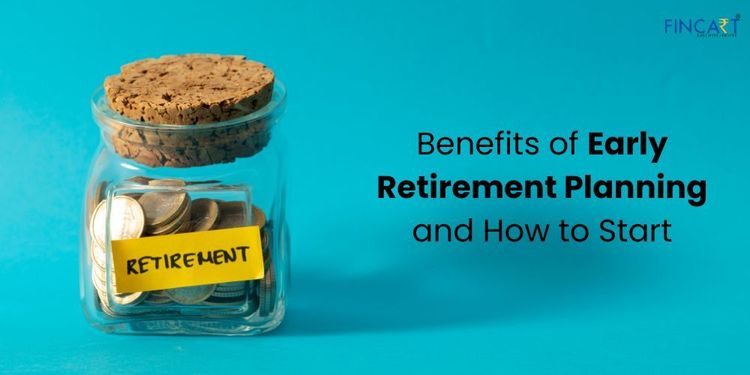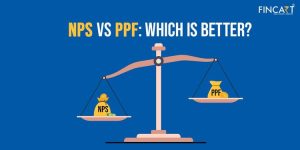Table of Contents
ToggleWhen we imagine retirement, we picture our old selves in a calm and relaxing environment. It’s a place where we can enjoy ourselves, sipping tea and reading our favourite books.
It’s all about having some money set aside so that we’re free to do whatever we want when we’re no longer working. The concept of early retirement planning is getting a lot of attention nowadays. The idea of breaking free from the routine of 9-5 jobs and welcoming a life of relaxation, exploration, and finding happiness is getting really appealing to a lot of people. However, quite a few of them struggle to reach this goal because they don’t begin investing in it soon enough.
Getting to a point where you can retire early and still have financial security isn’t a simple feat, especially with the increasing rate of inflation. It requires a very good financial planning strategy and much more.
In this article, we will explore the ins and outs of early retirement planning. By the end of this article, you’ll have a better understanding of how to plan for it and secure a financially comfortable future!
Define your retirement goals
Every plan needs a target or something to aim for. Having that realistic goal is the initial step of early retirement planning. Imagine stepping into the shoes of your future self – what do you see? Retirement is more than just the absence of a 9-to-5 job, it’s a chapter in your life where you should be able to do the things that truly make you happy! And realistically, for someone who is used to the routine of a regular job, spending the free time can be a little challenging.
So, you need to ask yourself a lot of questions like “Do I want to travel the country, pursue a hobby, or simply spend quality time with my family?” Also, ask yourself, “Why do I want to retire early?” “At what age do I want to stop working?” Having an answer to these questions is a good start for a plan. This is because whichever goal you pick would come with a price tag, and it’s essential to have a clear idea of what you want so you can ensure you have the means to make it a reality.
Remember, planning for retirement isn’t only about quitting your job. It’s about making sure you can keep the kind of life you’ve always wanted, even when you’re not getting a regular paycheck anymore.
Evaluating your current financial situation
Now that you’ve started thinking about what you want for your retirement, it’s important to understand your financial situation. To build a strong retirement plan, you need to start from where you are. Here is how you can do that:
Calculate Your Income, Expenses, and Savings
To start, take a look at your sources of income. This includes your salary, bonuses, rental income, and any other sources of money coming into your pocket.
Next, dive into your expenses. Track every rupee you spend – from groceries and bills to entertainment and dining out. This is where you’ll realise where your money is going.
Now, let’s talk about savings. How much are you currently putting aside each month? This could include contributions to your Employee Provident Fund (EPF), fixed deposits, or any of your other investments.
List Down Your Assets and Liabilities
Assets are what you own – your home, investments, bank balances, vehicles, and any valuable possessions. Liabilities, on the other hand, are what you owe – your loans, credit card debts, and any outstanding payments. This helps you understand your net worth!
Understanding Where Adjustments Are Needed
You’ll realise that maybe you’re spending more on non-essential items than you thought, or perhaps your savings are not as substantial as you’d like them to be. This awareness will help you to trim down unnecessary expenses, and increase your savings rate!
Creating a retirement savings strategy
After getting a good idea about your current financial standing, you should get down to creating a retirement savings strategy
First, you must identify the cost of your goals. This means calculating how much money you want saved up when you retire. Think about the expenses for retirement like housing, medical care, transportation, etc. Now, add up these yearly expenses and multiply by the years you’ll be in retirement! For instance, if you have 20 years till retirement, and you’d need to save Rs. 10 lakh annually, it means that you’d need Rs. 2 crore by the end of your career.
However, this simple calculation does not factor in inflation. To get a real picture considering inflation is very important. It will give you an idea of how much you need for retirement. Several online calculators can help with this too!
Then, all that’s going to be left is to invest smartly. It can help your money grow over time, thanks to compound interest! You can choose from options like the Public Provident Fund (PPF), Employee Provident Fund (EPF), Mutual Funds, and the National Pension System (NPS). These can help you make the most of your money and work towards your retirement goal!
Also Read: NPS vs PPF: Which Is Better For Retirement?
Managing debt and expenses
Debt and unnecessary expenses can be a retirement dream killer. They have a significant influence on your retirement plan.
Priority number one? Try to pay off high interest promptly. Think about credit card debts and student or personal loans, for instance. These types of debts often come with interest rates that can snowball, leading to a substantial drain on your finances. It is very crucial to cut them down or pay them off. You can also consider debt consolidation or refinancing to lower interest rates and pay them back faster. When you eliminate these financial burdens, you will have more money to put toward your retirement savings!
Then, you need to craft a thoughtful budget. Budgeting might not be the most thrilling thing, but it is very crucial. A good budget lets you take charge of your spending. It’s about distinguishing between wants and needs. While it’s totally fine to enjoy things, finding places where you can cut down can really help your retirement savings.
Even though it may seem small, handling debt and expenses is a pretty big deal when it comes to planning for retirement.
Increase your income
Increasing your income can give your retirement savings an incredible boost!
Nowadays, the idea of a “side gig” is gaining popularity. It is essentially a flexible secondary job that you can do alongside your primary one. It’s a great way to use your skills and passions to make more money without disrupting your main source of employment. You can explore freelancing platforms, help out local businesses, or even start an online store!
Other than that, investing in yourself can prove to have significant returns. You can think about upgrading your skills to qualify for higher-paying jobs in your current field or something similar. You can also attend different workshops, take some courses, and pursue certifications that enhance your expertise. Every extra rupee you earn can make a big difference in the long run!
Seek professional financial advice
Adding the “early” in retirement planning can add a few more challenges and complexities. Navigating through it all by yourself is no walk in the park. Having the proper financial advice in a situation like this can make a huge difference in your future.
Financial planners can help you understand your goals and manage your expectations and finances with expertise. They take the time to understand your unique circumstances, goals, risk tolerance, and time horizon. A good advisor can help you by suggesting appropriate investment strategies that are unique to you.
Having a reliable advisor with you means you can start your journey to early retirement knowing that your dreams are being taken care of by someone skilled!
Why is an early retirement plan important?
Early retirement planning can really help you in the long run. It lets you figure out your current financial status and what your future requirements and bills are going to look like after you stop working!
Other than that, if you’re the main earner for your family, things can get challenging after retirement. But if you save in an early retirement plan, you make sure you and your loved ones are financially safe. Plus, you’ll have a steady income and fewer sudden financial strains.
Also, putting your money into a retirement plan when you’re young is a good move. The earlier you start, the more money you’ll have later for all the things you want to do. Planning ahead also allows you to retire on your terms, without being forced to work longer due to financial constraints!
Also Read: How Much Money Should I Invest In Retirement Plans?
conclusion
In conclusion, early retirement planning is a gift you give to your future self! By defining your retirement goals, evaluating your current financial situation, creating a savings strategy, and managing your expenses wisely, you can pave the way for a comfortable retirement. Increasing your income and getting help from an investment advisor further solidify your plan’s success! Remember, the key is to start as early as possible – every rupee you save today is an investment in your tomorrow.




